
 Flash News
Flash News
Accident on the Shkodër-Muriqan axis, two injured
Iran retaliates against US, attacks US air base in Qatar with missiles
KPA upholds dismissal of prosecutor Çlirim Sino
Abuse of tenders and falsification of documents, GJKKO gives sentences to 4 former officials (NAMES)
A 70-year-old man is found dead in the Buna River
Kosovo - far from the Middle East, but close to the consequences
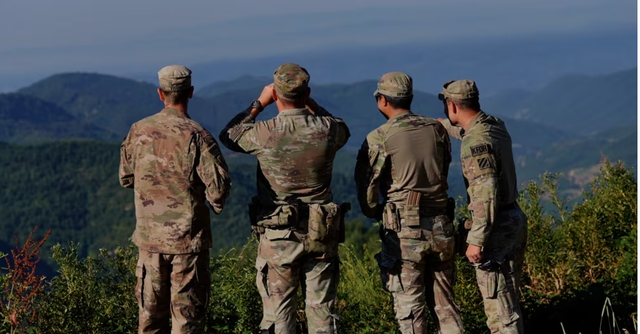
At a time when the world is hanging in the balance due to the escalation of tensions in the Middle East and the possible consequences of a global-scale conflict, small states like Kosovo are faced with several fundamental questions: how prepared are they to face a crisis that could shake the most stable foundations of international security, and what concrete risks threaten them?
According to security expert Adrian Shtuni, the nature of a global crisis is such that no one remains immune to its consequences, but not everyone is affected equally.
“Kosovo is generally moderately vulnerable, but comparatively more so than other Western Balkan countries,” he says, citing economic, political and security reasons.
For international politics expert Gëzim Visoka, Serbia's continued hostility poses the greatest threat to Kosovo's stability - a danger that, in times of global crisis, can be amplified and exploited by actors with destabilizing interests.
What's happening in the Middle East?
For several days now, Israel has been launching intensive attacks on Iran. Its stated goal is to destroy Iran's nuclear program, which it sees as an existential threat to its security.
Iran has responded with attacks on Israeli targets and has warned of even harsher military responses.
The US has also been involved in this mess, having struck Iranian nuclear facilities in Fordow, Natanz, and Esfahan.
US President Donald Trump has declared that "Iran, the bully of the Middle East, must choose peace. If it does not, the next attack will be bigger and easier."
Iran has vowed to retaliate, further exacerbating the situation and making the crisis unpredictable.
Economic consequences and security challenges for Kosovo
Adrian Shtuni, from the International Counterterrorism Center, emphasizes that Kosovo is particularly vulnerable to the economic consequences that this crisis could cause.
He explains that the situation would deteriorate significantly if Iran decides to close the Strait of Hormuz, through which about 20 percent of global oil and natural gas consumption passes.
For a country like Kosovo, which has already experienced a significant increase in the price of electricity of 16% this year, "further increase would be a shock to the economy," Shtuni tells Radio Free Europe.
He underlines that, with an economy heavily reliant on imports and remittances - which account for around 13% of Gross Domestic Product - any shock to the global economy would immediately translate into pressure on Kosovar families.
“Gjithashtu, fakti që Kosova ka një deficit tregtar të konsiderueshëm, që në dhjetor të vitit 2024 u rrit me 17.5% krahasuar me një vit më parë, e ekspozon atë akoma edhe më shumë ndaj një krize globale, që do të rriste jo vetëm çmimin e energjisë, por edhe të ushqimeve dhe mallrave të konsumit, që vendi kryesisht i importon”, thotë Shtuni.
Eksperti me seli në Uashington paralajmëron se pasojat ekonomike nuk mund të shkëputen nga sfidat politike dhe të sigurisë.
Në kohë krizash, kur vëmendja e partnerëve strategjikë është e shpërndarë, ai thotë se Kosova rrezikon të dalë edhe nga radari i aleatëve të saj më të rëndësishëm.
Gëzim Visoka, profesor i Studimeve të Paqes dhe Konfliktit në Universitetin e Qytetit të Dublinit, ndan shqetësim të ngjashëm.
Ai thekson se krizat globale krijojnë vakume gjeopolitike që mund të shfrytëzohen nga aktorë destabilizues për të dobësuar Kosovën.
Visoka e sheh armiqësinë e vazhdueshme të Serbisë si “kërcënimin më të madh për stabilitetin e brendshëm të vendit”.
Ai, po ashtu, paralajmëron se varësia e theksuar e Kosovës nga prania ushtarake e NATO-s, e bën atë veçanërisht të cenueshme, në rast se Aleanca detyrohet të zhvendosë trupa drejt zonave më të nxehta të konfliktit global.
“Rreziqe të tjera mund të jenë sulmet e fshehta nga qeveri joperëndimore dhe grupe joshtetërore ndaj pranisë ushtarake të NATO-s dhe SHBA-së në Kosovë”, thotë Visoka për Radion Evropa e Lirë.
Në të njëjtën linjë, Shtuni shton se aktorët me qëllime jomiqësore ndaj Ballkanit Perëndimor, veçanërisht ata që tradicionalisht janë kundër anëtarësimit të vendeve të rajonit në BE dhe NATO, mund të shfrytëzojnë amullinë e krizave globale për të destabilizuar rajonin.
Sipas tij, këto kërcënime synojnë dy pika të dobëta, Bosnje e Hercegovinën dhe Kosovën, duke instrumentalizuar përçarjet dhe tensionet ndëretnike në këto dy vende.
Mungesa e integrimit ndërkombëtar, pengesë për menaxhimin e krizave
Të dy ekspertët theksojnë se izolimi ndërkombëtar e bën Kosovën më të pambrojtur ndaj krizave globale.
Mungesa e anëtarësimit në OKB, BE apo Interpol, thonë ata, e përjashton vendin nga mekanizmat kolektivë të reagimit dhe mbështetjes ndërkombëtare.
Kjo, sipas Shtunit, “përbën pengesë për bashkëpunimin sa më të fortë dhe efikas në përballjen me terrorizmin apo krimin kibernetik - probleme që mund të shtohen nëse kriza në Lindjen e Mesme përshkallëzohet më tej”.
Edhe Visoka paralajmëron se, përderisa Kosova mbetet jashtë organizatave ndërkombëtare vendimmarrëse, ajo nuk ka mundësi reale të ndikojë në proceset globale apo të mbrojë interesat e veta.
“Zëri i Kosovës mbetet kryesisht i padëgjuar”, thekson ai.
Çfarë mund të bëjë Kosova?
Radio Evropa e Lirë kontaktoi Qeverinë në detyrë të Kosovës për të pyetur nëse janë marrë masa konkrete për të mbrojtur ekonominë dhe sektorin e energjisë nga një krizë globale e mundshme, por nuk mori përgjigje.
In this challenging context, experts underline the urgent need to strengthen institutions and deepen regional and international cooperation.
Shtuni emphasizes that the fact that Kosovo, even more than four months after the elections, does not have a constituted assembly and functional government, severely weakens its capacity to face security challenges.
He calls this a "self-inflicted weakness" from a lack of political will.
"This constitutes the most damaging disarmament of leadership in Kosovo, disarmament from political accountability and practical thinking for compromise solutions. If there is no rapid awareness, this crisis risks bringing costly and long-term consequences for the country," says Shtuni.
Visoka also emphasizes the importance of building institutional stability and deepening security relations with Kosovo's key allies.
He adds that attention should also be focused on strengthening cybersecurity and creating platforms and mechanisms to avoid, as he says, "the risks that come from the breakdown of the international order, such as disruptions to international trade, energy, health, the environment, as well as cultural and religious conflicts."
Experience from the war in Ukraine
How global crises can directly affect even small and geographically remote countries like Kosovo was clearly demonstrated after Russia's full-scale invasion of Ukraine in February 2022.
Kosovo immediately faced rising electricity prices, rising inflation, and rising prices for basic products – direct consequences of the global supply crisis.
With an economy heavily reliant on imports and limited production capacity, the country had little room to mitigate the effects.
The government intervened with subsidies for certain categories of citizens, but the economic blow was felt widely.
The crisis also exposed fragility in the security field: Kosovo, still outside NATO, was left without full guarantees in a Europe that was entering a new phase of uncertainty.
In this situation, President Vjosa Osmani called for the acceleration of Kosovo's membership in NATO, warning that the lack of integration leaves the country vulnerable to Russian influences and regional tensions.
Today, Kosovo continues to remain outside NATO, the EU, Interpol, the United Nations, and other organizations, and the blocking of membership is mainly related to the lack of an agreement to normalize relations with Serbia.
"To restart the engine of integration into international organizations and benefit from the advantages they offer, Kosovo will need to adopt a more proactive and practical approach, without delay," Shtuni concludes. REL
Latest news

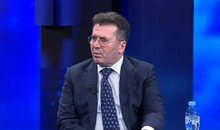
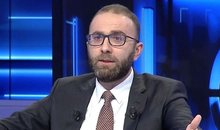
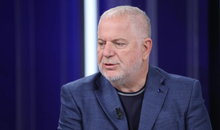
US bombings of Iran, Haxhiu: Radical groups bring the risk of escalation
2025-06-23 22:05:53
May 11, Bardhi: The DP was faced with the state and its other dark sides
2025-06-23 21:41:53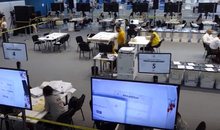
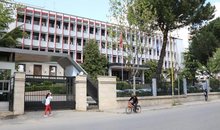

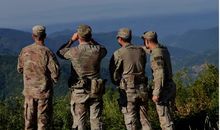
Kosovo - far from the Middle East, but close to the consequences
2025-06-23 20:24:48
War/ Iran notified Qatar before attack on US air base
2025-06-23 20:14:27
Accident on the Shkodër-Muriqan axis, two injured
2025-06-23 19:54:18
Is Albania at risk from radiation in case of nuclear attacks? Expert explains
2025-06-23 19:49:11

Another operation in Abu Dhabi, one of Dritan Gjika's associates arrested
2025-06-23 19:19:52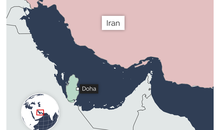
Iran retaliates against US, attacks US air base in Qatar with missiles
2025-06-23 19:00:47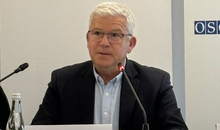
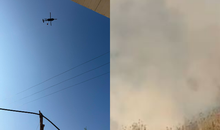
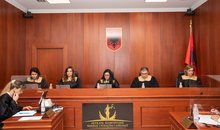
KPA upholds dismissal of prosecutor Çlirim Sino
2025-06-23 18:26:38
Changes in life and career growth, here are the three luckiest signs of the week
2025-06-23 18:23:05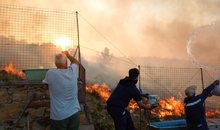
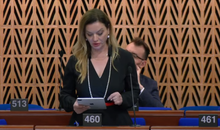

New Bureau Director
2025-06-23 17:40:36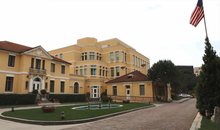
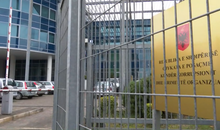
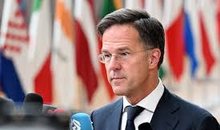
Rutte: US attacks on Iran 'did not violate international law'
2025-06-23 16:57:06
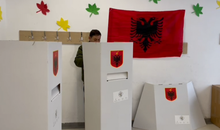
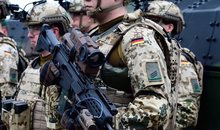
War/ Germany takes precautions in case of retaliation from Iran
2025-06-23 16:20:28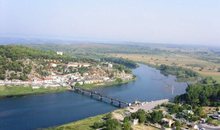
A 70-year-old man is found dead in the Buna River
2025-06-23 16:07:35
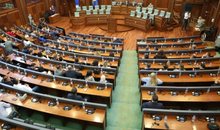
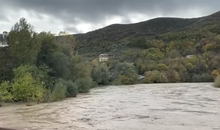
A dead body is found in the Shkumbin River
2025-06-23 15:21:50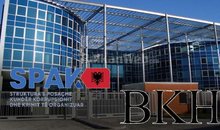
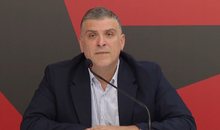
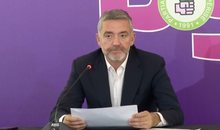

Accident in Prrenjas, car hits and kills pedestrian
2025-06-23 14:20:12
Salianji requests conditional release, here's when the decision will be made
2025-06-23 14:03:10
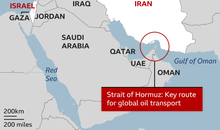
What is the Strait of Hormuz and what happens if Iran blocks it?
2025-06-23 13:28:25
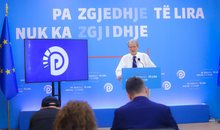

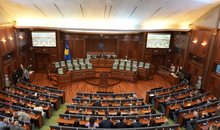
The 36th attempt fails, Kosovo still without a new Parliament
2025-06-23 12:17:11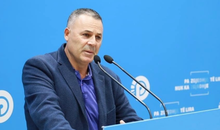
Recount/ Dogjani clashes with Ilir Rusmal: Steal votes, with what right?
2025-06-23 11:59:50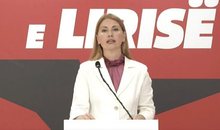
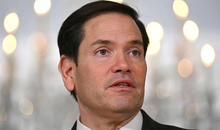
US asks China to stop Iran from closing Strait of Hormuz
2025-06-23 11:10:34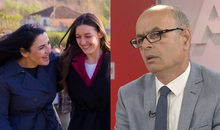
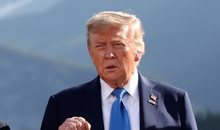
Trump talks about possible regime change in Iran after US bombings
2025-06-23 10:35:46
Presented at SPAK Majlinda Bufi
2025-06-23 10:18:30
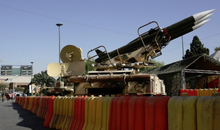
Iranian generals threaten US with 'decisive response'
2025-06-23 09:46:00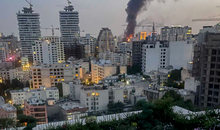
4 more Albanians evacuated from Israel
2025-06-23 09:31:11
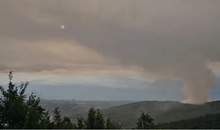
Fire at the waste landfill in Kukës, plumes of smoke spread towards the city
2025-06-23 08:52:12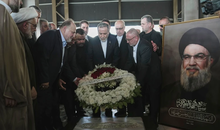
Why have some of Tehran's key allies stayed out of the Israel-Iran conflict?
2025-06-23 08:34:20
Sterilization PPP nears closure, real cost 53% more than contract
2025-06-23 08:19:00
Gunshot wound in Shkodra, perpetrator flees
2025-06-23 08:04:44
Horoskopi, çfarë kanë rezezervuar yjet për ju sot
2025-06-23 07:50:28
Temperatures up to 36 degrees, weather forecast for today
2025-06-23 07:40:11
Morning Post/ In 2 lines: What mattered yesterday in Albania
2025-06-23 07:22:30
Krim brenda familjes në Greqi, 61-vjeçari vret prindërit e tij të moshuar
2025-06-22 21:57:48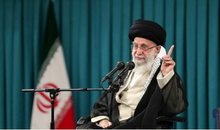
US airstrikes/ Iran warns: The game is not over!
2025-06-22 21:29:22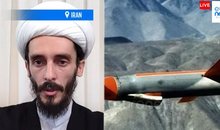


The US is involved in the war, why did Trump take the risk of attacking Iran?
2025-06-22 20:28:22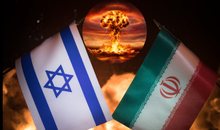
Israel-Iran conflict increases global tensions: Is the Albanian economy at risk?
2025-06-22 20:02:04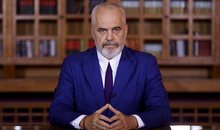
The US bombed Iran/ Rama: I support Trump's sincere efforts!
2025-06-22 19:40:21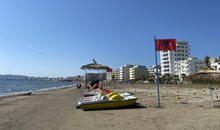
Bosnian tourist drowns in Durres
2025-06-22 19:05:48

The 10 strongest criticisms of the PACE report on the May 11 elections!
2025-06-22 18:41:21

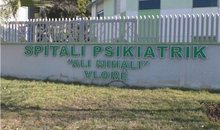
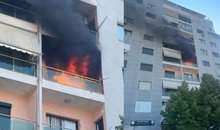
An apartment in Yzberisht is engulfed in flames
2025-06-22 17:32:13
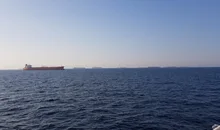

Rinderpest/ The number of outbreaks rises to 10, here are the affected districts
2025-06-22 16:25:12


"Trump has opened Pandora's box"
2025-06-22 15:10:04

Pope Leo XIV: Stop the tragedy of war before it becomes an irreparable abyss
2025-06-22 14:24:22
Criminal group busted in Belgium, 10 Albanians among those arrested
2025-06-22 14:00:58
Cities race for tourists, Tirana cheapest, but busiest
2025-06-22 13:35:53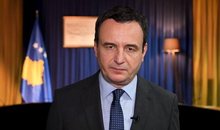
Kurti supports US strike: International security needs fewer nuclear weapons
2025-06-22 13:18:54
Selling drugs in the former Bllok, 23-year-old arrested
2025-06-22 12:57:58
Berisha supports US strike on Iran: Strong call for overthrow of dictatorship
2025-06-22 12:39:35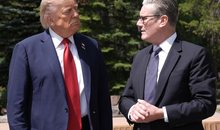
Starmer supports US attack on Iran, calls on Tehran to return to negotiations
2025-06-22 12:20:56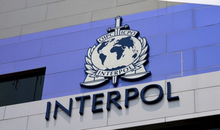
Sentenced to 8 years in prison in Italy, 33-year-old Albanian arrested
2025-06-22 11:54:45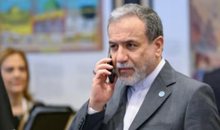
Iran condemns US attack on nuclear facilities, warns of consequences
2025-06-22 11:34:21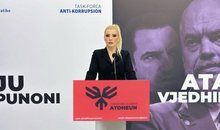
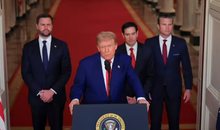
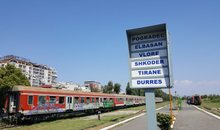
Albanian Railways is affected by collective staff cuts
2025-06-22 10:46:46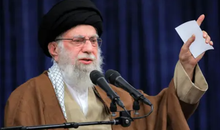
The US has changed the course of the conflict - how will Iran respond?
2025-06-22 10:24:26
Cannabis in drainage canals, 48-year-old arrested in Fier
2025-06-22 10:06:41
Albanians 'invade' New York, thousands march in the Red and Black parade
2025-06-22 09:44:26
Foreign exchange, the rate at which foreign currencies are sold and bought
2025-06-22 09:27:27
Is it worth buying an apartment to rent out?
2025-06-22 09:12:40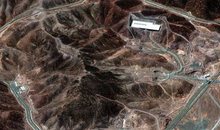
US bombs Iran, hits three Tehran nuclear sites
2025-06-22 08:53:08
